From Music to Mixed Signal Design: Phil Salmony's Engineering Journey

Tune in to this episode of the CTRL+Listen Podcast for a fantastic interview hosted by James Sweetlove and Inga Woods-Waight with guest Phil Salmony, the mind behind the @PhilsLab YouTube channel. From his early passion for music to his foray into mixed signal design and PCB design consulting, Phil shares his unique path in the electronics industry.
Learn about the various roles Phil's taken on, from working in the audio sector to creating tutorials for engineers, and learn how he balances practical experience with industry knowledge.
Listen to the Episode:
Watch the Episode:
Episode Highlights:
- PCB Design Trends Phil's Watching
- Mixed Signal Design Distinctions
- Commonly Overlooked Things in PCB Design
- Phil's Design Checklist
Episode Links:
Check Out Phil's Lab here
Connect with Phil on LinkedIn here
Transcript:
James: Hi everyone, this is James from the CTRL+Listen Podcast, brought to you by Octopart. I'm here with my cohost, Inga Woods Waight. And we have a guest for you today, Phil Salmony. I bet a lot of you already know who this person is. He's a very well known engineer. He is behind Phil's lab. Thank you so much for coming on the show. Really great to have you.
Phil: Well, thank you very much for having me.
James: Anytime. Appreciate it. So just for anyone who isn't familiar with you or your work or Phil's lab, do you want to maybe tell people a little bit about yourself and what it is you do?
Phil: Sure. So predominantly I'm an electronics and PCB design co consultant. Been doing that for quite a number of years, so self-employed, but have worked for a number of different companies throughout, mainly in in aerospace and drones and more recently, far more in the audio sector. So professional audio mix, signal electronics. And I guess where a few people know me from is, is my YouTube channel, Phil's lab, which I started about three to four years ago, pretty much outta my own necessity. So just doing tutorials about electronics design, PCB design. And yeah, so I also offer courses and so do various tutorials weekly pretty much. And also great content for value Octopart and so forth.
James: Yeah, we have great content. We appreciate that. And there was just one that went up recently if you want to see that go on our YouTube channel. We can check that one out. Phil, do you wanna tell us a little bit about your career and the path that led you to, to where you are as an engineer?
Phil: Yes. So electronics was pretty much always a thing for me. My dad is an engineer as well. Back in the day he worked for IBM for 20 years, also designing electronics first kind of computers with, with transistors. And so we also doing electronics together and then fairly natural choice for university. And during university in my second or third year, a friend showed me PCB design at the Key Kat at the time, which is a free tool. And that got me completely hooked on PCB design even more so than I was on electronics beforehand. And this opened, you know, many, many doors for me. New opportunities you can do with PCB design rather than just spread boarding and so on. So that was the first introduction during university already off university. I worked for a subsidiary of Airbus for, for, for a short time before then moving on to an, an own startup as a co-founder in Denmark. And that startup basically created a flying laptop, so a drone which had an Nvidia computer net, which can do AI machine learning, various peripherals and sensors. And I was responsible for the electronics there as well. That is now still existing in a different company. It's a French company now who went to the journals called Cobra. Anyone interested that's they're currently releasing that and the electronics still live on, which is quite nice. But after that engagement, I went on to be completely self-employed as a consultant electronics. And these days I work predominantly on, on pro audio systems because I'm a musician myself and that, that ties in quite nicely.
James: What type of music?
Phil: Oh that's, it's, it's an incredible mix. So for guitar, do you play as well by any chance?
James: I don't play, but I'm heavily involved in the music scene.
Phil: Okay, very cool. So guitar wise, it's mainly eighties rock and metal. I'm missing the hair, but other than that, that's the main thing. But it's just quite a broad mix. But yeah.
James: Awesome. Anything with guitar? I'll to speak, I'm gonna speak to you about that after the podcast.
Inga: I'm gonna have to ask, was one of your first projects in PCV design something for your guitar, like a synthesizer or anything like that?
Phil: Definitely. And that, that was one of the first things with the market controller was how do you make your own guitar pedal, like effects pedal. 'cause I'm a huge fan of DSP as well and I never, I'm too lazy to create creating analog circuits, but it's so cool that you can program guitar effects pedals and software so that Yeah, exactly. That was one of my first first projects.
James: Awesome. And like you said that you were introduced to PCB design and everything like that. How hard was it for you to be able to find, you know, educational content, like what you're doing now? Was it hard and that's why you created Phil's lab to make it more easily accessible
Phil: And that's, that's exactly right. So at the time it felt to me there wasn't, well there was YouTube content on engineering and electronics, which I'm very grateful for, helped me through university. But on PCB design at the time, four or five years ago, there wasn't particularly much. I'm sure you're aware. Yeah. And it, the first video I made for the YouTube channel was for me, I essentially looked at load the data sheets and application notes. How do you do this? How do you use the specific ECA tool? Compiled that together. And that first video, I, I think it's still up is, is that first video, which was, which was for me at the time, so to speak. But yeah, that was luckily somehow started or filled a niche at least in that educational yeah sector. But now there's, there's loads of, also from Alium, I mean Alium Academy has been incredibly helpful also for me today and for many others from what I've seen.
James: Great to hear.
Inga: Did, did you get any like, you know, guidance when you were like, you know, doing your PCV designs or anything, like getting reviews over them or like, you know, how many failed attempts did you get in before like, you know, getting a failed circuit board back and realizing, oh, I accidentally messed this up or I it was off by this much.
Phil: Yeah, I mean starting out there was, I don't think there was any smoke, but things certainly didn't work at times definitely to start out with. And also just, and there's so many things to PCB design if you haven't done it before. And I didn't have, other than my friend knowing how to maybe draw a trace on, on that tool, we didn't really know what we were doing. So just choosing package sizes. What's oh 4 0 2, why is that exist in Imperial? So I think the first module I designed, I, I had these huge through hole ads and oh 2 0 1 resistors on it. So Yeah, let's forget about those first PCBs. But it was a good learning experience and I think that's how I learned, learned quite a lot was just, you know, making mistakes, iterating, looking at other people's designs. But other than in companies, there wasn't very much of a review process unfortunately. And that's also one thing, being self-employed. Yes, you do work with companies that have their own engineers, but as a consultant of course you should hopefully be the one that knows maybe a bit more and helps with the PCB design process. So that is interesting to say the least. But thankfully with a few years of experience, things have been going well for the most part.
Inga: Oh, that's great.
James: For someone who's coming outta school who's trying to decide if they wanna work for a company or be a consultant, what would you say to them? What's the perks of, of both?
Phil: Well, I think straight outta school it's, it's quite difficult to land a consulting or contracting gig for what I've seen. I've maybe a bit different on that and because the YouTube channel helped with promotion as well. So fairly only a short while after university I was able to start this, my own little business so to speak, but set out school, I find it very difficult. So I occasionally browse forums and and so on and people getting advice or wanting advice on becoming a consultant, a contractor. And the general consensus is that you should spend, which I agree with a number of years in a company, having formal review processes, seeing how to do things in practice. Not saying that you can't learn it on your, on your own, but if also a requirement is, you know, having a roof over your head and and feeding yourself, then it, it, yeah, yeah. Which, no, but
Inga:You end up building bad practices too. It's hard to completely,
Phil: Exactly. And also then also being exposed to more and more complicated projects, I find just so you can, you know, improve your skills is maybe more easily done in a, in a structured framework such as a company. So that's what I would recommend is, is gather some experience, have some mentors. It's great to have people to ask. Yeah.
James: Awesome. I wanna go a little bit more high level stuff here. During your time in the sector, what have you seen as some of the trends that are kind of like, have been developing over the years? Like what's a current trend in this area that's really worth paying attention to?
Phil: With, with regard to the PCB design? There's a few different things. So high speed. First of all, I think modern PCB design should be comfortable with, with various HighSpeed interfaces, but also miniaturization I've seen a lot. So even for example, guitar pedals or, or audio gear, you need to start being able to comfortable with smaller packages, knowing the assembly processes, what can go wrong and so on. Maybe working with HDI even though that, at least in my area isn't particularly common mineralization mix signal as well. Being able to use RF analog digital on the same PB or a combination of PCPs, I think is, is, is quite critical, at least from a design point of view. And also just connectivity, especially embedded systems, being able to add on RF trans CERs, make sure they work fine with other systems on board. So again, this kind of mix signal design, at least from my world is, is what I've seen a lot more of. Now I, I, I must admit, I'm not too at the forefront of, of PCB design or working on ultra HDI or very, very high layer account boards. So my saying out from what I've seen, even in what used to be audio, you know, two layer boards, one layer boards now moving to fairly complex mixed signal designs and by the high bit depth, just being comfortable with, with, with those kind of design techniques. That's what I've seen, but
James: Awesome. Now when you're talking about like mixed designs and everything, like when you're talking about, you know, planning and working with these, is there any like key differences between, you know, analog and digital circuit designs?
Phil: Yeah, so there's, there's definitely a number of things I always try to tell myself or, or or to pay attention to. With the mix signal designs, you really have to be with mixed signal. The main thing to me at least is, is separation between the analog digital domains really sectioning off the power supplies, choosing the right power supplies for analog digital sections and so on. Whereas digital is of course fairly forgiving and analog is its, is its own thing as well. Depends of course on the frequency range and so on. But I work predominantly in audio. So mixed signal definitely has its challenges with once I, at least in the audio domain, once you know you've done it a couple times, there's these repeating patterns that that always come up and up again. Basically just separation and having clear boundaries between analog and, and digital is what I found to be, you know, always work. Basically
Inga: What would you say are some of the things that most often get overlooked in engineering and design
Phil: Most often overlooked in engineering and design? Do you, in what particular area? Is it
Inga: Probably like in designing or like sending in for manufacturing, like maybe overlooking like a layer or probably putting too many components over engineering it?
Phil: Yes, I mean there is definitely some some over engineering to it overlooking, I think a lot of companies lack a formal design review process or for example, when you're generating manufacturing data or doing the final steps of checking, there isn't really a a process in a lot of, especially smaller companies I've seen. So in large companies are, there are quite often these processes in place, but in smaller companies everyone either does their own thing or it's not organized in some sort and that's a way you can catch a lot of mistakes. For example, even just scanning through your Gerbers or whatever export or what you're looking to gives you a completely different view on things. And just having a pre-arranged list to me is, is is really useful. And yeah, but I i, I do see that missing in, in quite a few companies I've worked with.
Inga: Do you feel like you have developed a good like, you know, how would you say planning or perspective of like, okay, what to check and have your own load checklist?
Phil: Yes, no, completely. I, I try to maintain my own checklist and that's one video I'd love to do in the future, but I feel like that would be several hours long
James: It's needed.
Phil: Yeah, yeah definitely. But I know what are your experiences with that? Did you, do you have your own checklists or have you worked with companies that,
Inga: I have my own little checklist but like I still need to have like mentors to be able to tell me, okay, well you need to look for this, you're missing that. Or like, you know, I'm like, oh I didn't think about that. Like that you some things it's you, you get so used to doing that you kind of like miss it under a big overview when you're trying to get it out and then you kind of miss it and then comes back to bite you.
Phil:That's completely right and you have one that's really set up. But that's why I love seeing everybody's different checklists and how they approach it because that made me, makes me think, okay, well maybe I'm missing on, on this or like that's a really good idea on how to do that process.
Inga: Yes, that's completely right. That's why I was kind of curious.
Phil: Yeah, no, definitely. And it's, it's a shame that there isn't some sort of, you know, community checklist. There are some GitHub I've seen or some, some blog posts but they aren't particularly exhaustive. So maybe with this next or a future video it would be cool to have a collaborative GI page or or article where people can add in and we can all create a global, so to speak, at least open source of a checklist for pc. Oh yeah, that I think that would be incredibly useful also for myself. 'cause there are things on my checklist that probably I've missed and then, then I might make a mistake and have to add it on later. So the more mistakes you can minimize Yeah, I'm all for that. Yeah,
James: Yeah, that's, that kind of raises a question for me. I want to ask, is there some sort of global standard of PCB design, like a minimum sort of quality level that that should be maintained? Obviously it's not enforced by anyone, but do you think there sort of is an expected level of quality?
Phil: I mean that's an in, that's an interesting question. I mean in terms of standards, there's of of course the IPC which lay out certain guidelines, but there aren't particularly, it's more, well from what I've seen more about manufacturing, there are of course some, some rooting guidelines or sizing vs. And traces how you should do thermal relieves, what the spoke width will be. So there are those guidelines, but what I found designers will even either have their own so they've 30, 40 years of experience design will have, will maybe not agree with certain ones and have their own ones. So there's, there's a bit of a, yeah, not a, not uniformity in that, at least of what I've seen. Yeah, that's a bit unfortunate, but maybe there's something, something to do about that.
James: Yeah, I I only thought of that because you were mentioning that the, you could potentially have sort of a checklist that everyone contributes to. So I was like, well maybe there's some standard that could be developed with like a, a quality check before something goes to manufacturing. But like you said, it's
Phil:There, there are from manufacturers for example, MD Xilinx, I've seen a lot of, they have their own checklist for their parts for example. So you can go through an Excel spreadsheet and say, okay, have I placed the right amount to coupling capacitors and things like that. But that again can be very design dependent as well. What types of decoupling capacities need where you've placed them. So there are things which you can't, I guess say with, with such a certainty. But yeah, some list that at least hints to what is needed would be would be great. But I, I wonder how many pages on that would be, but we'll see. Maybe that will,
James:You'd also have to get people to agree, maybe we can put a community and put into AI and chat GPT and then kind of format one. Now talking about the ai, do you think AI has like, you know, any growing importance in the electronic design?
Phil: Oh my goodness, yeah, it's,
James: I know it's a hot topic right now.
Phil: Definitely, definitely. I, I would like to say no, I assume it's gonna, I assume it's gonna be inevitable at some point. I mean the, at the end of day PCB design is just an optimization problem and s schematics, I mean, how many times have we created the sames schematics over and over again? It might be a different bike control or FPGA or something, but it's definitely not something that couldn't be automated, at least for the most part. Of course they'll always have to be, well I think people are involved, but I, I definitely think at some point it's gonna be automated. The question is the dimensionality of PCB design, it's quite common as a very high order problem. How long will it take until AI machine learning is, is, is far, but I don't see it as an inevitability unfortunately. So hopefully I have will have retired by then, but that's still another 30, 40 years
James: We've Oh yeah, yeah, because I, I know this like, you know, chat GPT and everything when you like try to type in formulas or like, you know, try to get answers for like certain numbers it gives you wrong calculation on or like how to do coding and everything. If you know what to look for, you know that it'll put it wrong or like you have to know how to prompt it and a lot of people don't know how to prompt it properly. So I think we have a good ways and then it might be like the same thing with auto roading. It's just, it's gonna connect anything that's a circle to like a trace line and everything. It's like no, we still good for that.
Phil: Yeah, yeah, completely. I sometimes go back as you said to chat GPT just type in something like maybe some snippet of code and I just pray it's wrong and usually it is, I dunno if I'm just creating wrong front, but that makes me somewhat happy. Maybe, maybe I shouldn't be, but yeah. Yeah, same thing with, with auto routing as well. I, I, I tried at times. Of course I've got a fairly decent auto in it, but yeah, I, I know I just also like drawing traces and connecting dots. Maybe that's just, yeah, that's a different thing as well.
James: I, from what we've seen with people who've come on the podcast who work in the AI and design space, it, it seems to be a very similar thing across the board with that area a chat, GPT, all of it where it's more used as a tool to save time than something that's actually used to create something of value. So it's, it's not, it's not at a point yet. It would seem where it can actually design a circuit from scratch, but maybe it can save you like all the time drawing out the basis of it so you can actually get to the more complex part yourself.
Phil: No, definitely and I would, I'd be all for that. I don't wanna have to place end coupling capacitors for every power pin myself. It'd be great if a talk could do that. I mean, and personally I would just love PCB design if someone could else to do the schematic for me, which of course people do. But that would be great and if an AI could automate that, at least the schematic part, that would be a really, a huge, huge time saver. Of course as a consultant when you're charged by the hour, that might not be the best thing,
James: But just don't tell the client, okay,
Phil: I'm afraid I can't say that from Marathon.
Inga: I want to ask again about the engineering path. Do you have any advice for anyone looking to get into the engineering field? Who's considering maybe studying engineering?
Phil: So for, for me it was basically just a given my dad, I dunno if he forced me into it, but he, he, he pretended well enough that I liked it anyway. So that's always a great start if you're interested just because you have a hobby that somewhat aligns for me it was music or generally just building stuff. So that aligned quite well. I think just a natural interest. I mean there's so many aspects of engineering just have to be electronics. If you're genuinely curious about how things work, I think that's a great start. And for me, I don't think I would personally do a job that I'm not at least somewhat interested in. I think also there's great career prospects. I mean engineers are needed in, in pretty much any, every different sector from what I've seen. And it's a hugely evolving and interesting field and yeah, I don't think I get bored of that and, and getting into it, my advice would be, I think also start as soon as you're interested finding project that you want to design or develop if it's mechanical or electrical or, or whatever, but, but have tried rather than just following school or university. Great young projects. And I think for me that also really helped during university, getting practical hands-on experience for me and what I've seen from a lot of other people universities is quite theoretical. Of course there's differences and you, I gained my most practical experiences by just accompanying that with my own project. And that was not because I want to get a higher starting salary or because I want to put that on my resume. It was because of your interest. So if I would suggest pursuing personal projects.
Inga: Yeah. Do you have, do you still have like files from like your very beginning projects so you could be able to like remind yourself, oh don't ever do this. Like the first PCB design is always the worst one. So you remember how far you've come to like now doing like, you know, 42 layers or something like
Phil: That? Oh my, yeah. Unfortunately at the time I was quite proud of it. My first PCB and my dad. Yeah, my dad framed it and I keep asking him to take it off the wall, but it hasn't happened yet, so maybe I have to send him this video as a final please. But yeah, no, it's, I mean it's, it's great to see, I mean, even looking back, I dunno how you feel about it. If you look back six months and you don't see, oh my goodness, what have I done the last PCB, then that to me, what was I thinking right? And that happens and I'm, I'm glad in a way that that happens. 'cause then I see, I think I'm improving, I'm maybe complicated designs. I'm changing the way I maybe do things, design things, which to me is good. But then I always think, okay, what am I gonna sit, think again in six months on a year time? What am I doing now? But to me I think that's, I I think most people have that. I'm not sure, I don't know how you feel about that, but
Inga: Oh no, you're, you're not alone, trust me.
Phil: Good, okay. No, but I think that's a sign of improvement. But yeah, I look back at my first PTV designs and think, oh my goodness, but then again without mentoring or something, or having someone to look over your shoulder to tell you that's not right. The only way I guess is by learning about doing mistakes and yeah.
James: Do you feel like having a portfolio also helps you like, you know, with all your designs, you know, as a student, you know, getting into their career show, okay, well this is what I'm capable of, this is how I problem solve this, you know, design or schematic or anything like that. Do you think that's something that, you know, students who want to get into electronic field or like, you know, electronics engineering field should probably start compiling or creating a GitHub with their files so people could be able to review it?
Phil: No, that's a, that's a completely great point. Yeah, exactly. That helped me the most during applications and job interviews, we didn't talk about any of their questions. We were discussing projects of mine or going through the PCB and actually bringing something physical to the interview was one of the coolest things because then you can just turn it around and talk about your things, you can discuss about it. This is the story. Yeah. And it's great. And usually the, the, at least the companies I've interviewed for, they love it. And it's great to have someone also to talk with and you just talk about the design choice and things like that and it's great having some of the show. Yeah, so that's a great point. Definitely. Okay.
Inga: Is, would you say, is there any like, you know, skill sets that, you know, students should start like looking into like developing, like should they start looking into like getting certifications if they can or like, you know, just doing little tutorials here and there, like the little online schools? Or do you just think like the portfolio, but what's something else good to have? Like, I know communication, being able to explain your design is one, and then having like, you know, a good format of how to present stuff. What are, what would be some skills that you have learned over time you think is beneficial to those entering into the field or like going into corporate different from, you know, consulting?
Phil: No, completely. I I mean basically everything you, you said before, so predominantly having something to show if it's maybe your, your first job or you're applying for jobs, having, because oftentimes the work I do or you do in companies, you can't publicly show. So it's always good to have side project if of course the time and if you can still be bothered after work is another question. But yeah, no, no, I think it's communication or being able to express your ideas, being able to talk about people, be able to handle and take feedback. I mean there's times where I'm, I make mistakes, I'm wrong and, and it's of course not particularly pleasant if you make mistakes, but learning from those, having feedback is, and being able to be accept accepting of, of constructive criticism I think is, is a very good skill to have from being able to communicate that with, with other people as well. And especially in company environments or if you are planning on becoming a consultant is is, yeah, negotiating, talking to people and, and being communicative. So that's definitely a skill to have rather than just drawing traces and adding capacitors onto s schematics. Definitely.
James: So speaking of skills, I, that raises another question. How important is fully understanding the design software that you use?
Phil: So I, I think, I think it's quite important. It just make, allows you to do your, your job a lot more efficiently. I of course that's gonna be the starting quite a, I mean when I started, for example with Altium or any other tool, there's quite a steep learning curve, but often in one or two weeks or maybe a month, it becomes like any other tool in terms of usability. But yeah, just being able to know the little shortcuts or you know, how to report polygons quickly rather than going through the menu system. It saves so many clicks and so much time. If you add that up over the time you're working or working on design, I, I would definitely suggest getting very familiar with, with your tool and also with a variety of tools if it, if that is BCV design software, if it's simulation, if it's various different spice simulators because different companies will use different tools and you might see a sort of crossover between the tools and then it's just a matter of learning different shortcuts. So I mean for the YouTube channel I predominantly feature Altium, but I also try to teach tool agnostic design. So rather, I mean grading or adding in capacity in one tool is very similar to doing another tool. So while the tool is important, it's not, shouldn't be maybe the main focus. Sure,
James: No, definitely. And is yeah, ability, do you think it's kind of worth attending those like workshops and watching the tutorial videos and stuff for those tools to find those smaller features and shortcuts?
Phil: No, definitely. I actually also fairly recently did the out team advance course and that was useful as well because there's many shortcuts and now I finally use where I just went through all these menu systems or I didn't even know features that were available in Alchem, for example, or whatever ECA tool used. There's so much stuff I hadn't maybe seen before that at least knowing about it that you might use it in the future is really good. So yeah, if it's, if it's free videos or if it's courses, I, I would definitely suggest that because I, I tend to stick to the commands I know and then I just try to do fe money, but it's good to occasionally in my eyes have, have that exposure. Definitely.
James: Fantastic. Inga, did you have any other engineering career questions left or did you kind of ask everything that you wanted to?
Inga: I think I basically asked everything, but if anything I'll just go on Phil's YouTube and or Brian in the comments, Hey Phil, I have a question about this. Oh my goodness. Okay, I'll, I'll keep my eyes open for that then.
James: Well Phil, I think that's, that's kind of everything we had for you. The last question is, if people want to check out your channel or follow you or you know, learn from you, what are the best places to do that?
Phil: So the first place is YouTube. If you type in Phil's lab, that should hopefully be one, one of the first few hits. So I typically release videos one to two weeks, every one to two weeks, so two times or more a month. Alterum Academy, I do have a few videos as well. And for Octa part, there's a, there's a new series, so spread across very bits of YouTube. I do have also courses, so if you know Robert Nik, I, I offer courses via his fave platform. So that's another way of, of getting one info
James: That, oh, you just reminded me. I wanted to ask you, you were just at Embedded World, how was that?
Phil: Oh yeah. Embedded world was, was loads of fun. It was, we spoke earlier, briefly, it's, it's, the YouTube thing is great and the comments are, are usually very lovely, but it's such a disconnect from, well, a slight disconnect, let's say from, from the real world. So it was great to meet people in person that watched the channel. Also Robert's channel, it was great to the, the, the small amount of time I had to actually walk around, see what's there as well. So it was, it was great. So hopefully you'll be again there, be there again next year.
James: Great. Yeah, our team that was there said they had an amazing time and the amount of people that you just meet like on a daily basis was kind of mind blowing the connections that you make.
Phil: No, I, I was very happy to see Aalto there as well. I, I believe last year I was there as well and the Aalto didn't have a stand or booth so it was great that we were there this time.
James: Yeah, sure. Well thank you so much for coming on the show and you really appreciate you taking the time. It's been great chatting with you.
Phil: No, thank you very much for having me on.
James: Anytime and for everyone listening at home, you can find the description and links for Phil's channel and the description below. And tune in next week we'll have another guest for you.

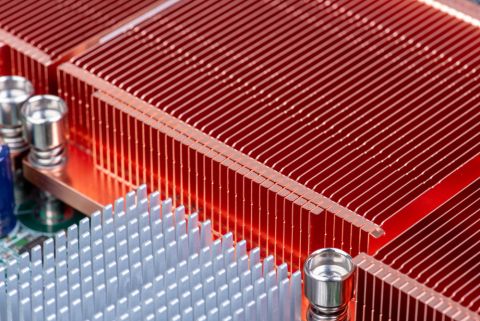

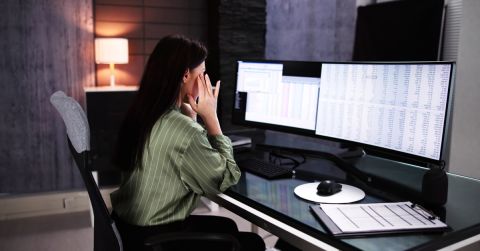
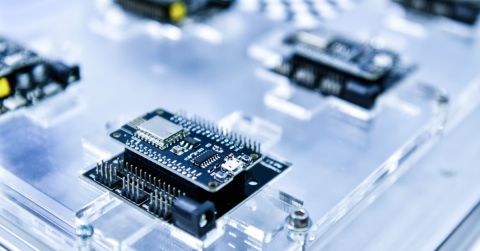
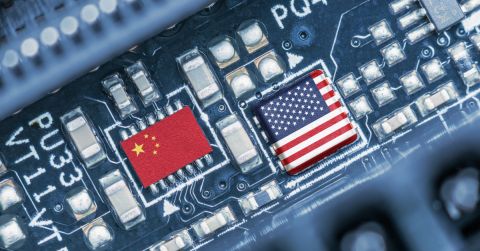
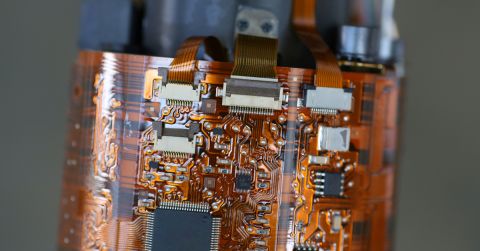
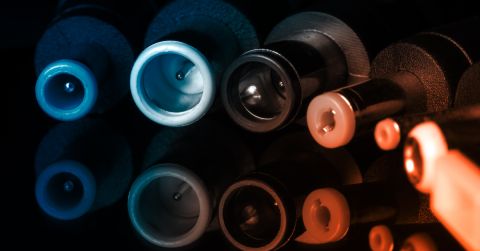



 Back
Back